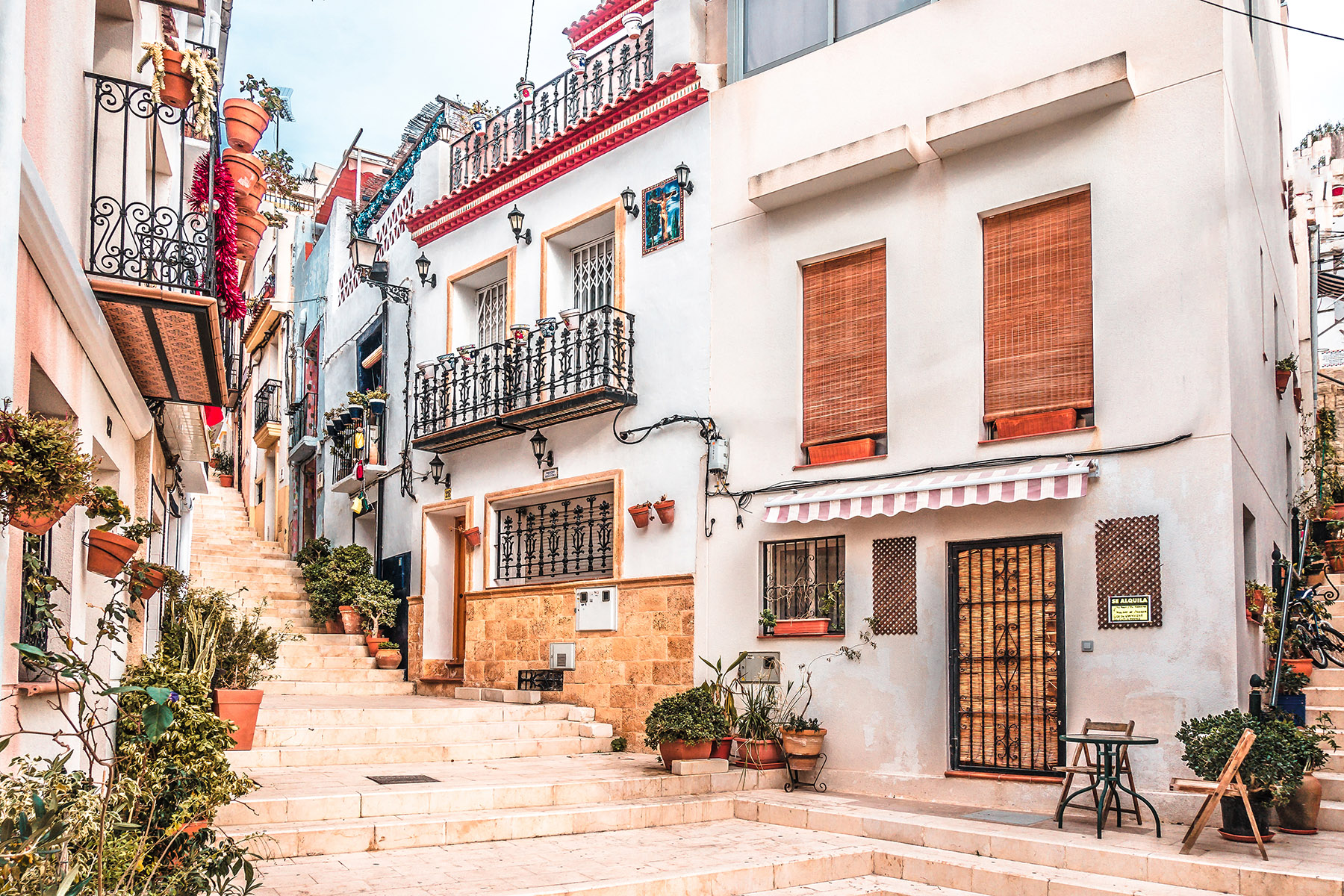Expats are advised to write and register their wills in Spain if they want their property to be disposed of according to their wishes, and in line with their own country’s laws. While writing a will in Spain is not essential, Spanish succession law comes into effect without a valid legal testament. This is generally considered a restrictive law, since it requires that most of the estate be left to specific relatives.
A foreigner living in Spain can usually dispose of their Spanish assets according to their home country’s laws. This guide covers all the key issues around wills and estates in Spain, with sections including:
Wise
When planning for the future, make sure you keep your money secure and find the best rates for international transfers. Wise allows you to move your money abroad securely at just the touch of a button. Whatever your personal or business needs, find a rate that works for you at Wise.
Wills and estates in Spain
Industry estimates suggest that well over 50% of non-Spanish owners of Spanish properties have either failed to make wills in Spain or have failed to update these documents in line with their actual wishes. The percentage of British owners of Spanish properties appears to be even higher, although there are no reliable figures to confirm these approximations.
A Spanish will helps to document all your different assets within the country’s borders, thus making bequests and legacies easier for your heirs. Consider including the following when writing a will in Spain: assets held in any Spanish bank accounts, property, life insurance policies in Spain, shares in listed and unlisted companies, and any material goods or possessions you may own, such as a car or jewelry.

Foreigners resident in Spain are entitled to dispose of their Spanish assets according to the law of their home country. As such, foreign wills are both valid and enforceable. However, they must be translated into Spanish and legalized before a Spanish consul (or affixed with an apostille where applicable). In the case of EU citizens, the law of the country where the deceased was living at the time of death will govern the succession, unless the deceased chose his or her national law instead.
Inheritance law in Spain
Spanish inheritance legislation requires you to pass on your assets to your spouse and your children. The Law of Obligatory Heirs reserves 50% of all joint property for your spouse.
The remainder of the estate is divisible into three equal parts. One third is equally divided among any surviving children (natural or adopted). Another one-third also goes to any surviving children but may be distributed equally or unequally according to instructions in a will. The spouse retains a life interest (usufruct) in this part of the estate and the children do not inherit until the spouse dies.
Finally, you can dispose of the third portion freely in a will.
It is particularly advisable to make a Spanish will if you have remarried and have stepchildren, or have other family members you want to include that are less protected by Spanish succession law.
Read our detailed guide to inheritance law and tax in Spain.
Inheritance law on pensions in Spain
Do you qualify for a pension in Spain? If so, in the event of your death it may be possible for your surviving spouse or dependent children to claim up to 70% of your Spanish pension.
Applicable foreign inheritance laws in Spain
Foreigners resident in Spain may not give away more than one-third of their estate, as the rest must be reserved for obligatory heirs. However, if an international or Spanish will stipulates that the laws of the testator’s home nationality apply, no aspects of Spanish inheritance law will apply to either Spanish or worldwide assets in that case.
Changes to EU rules introduced in 2015 mean that EU citizens living in Spain, as well as those from several non-EU countries, can now choose whether the law of their home country or their country of residence applies to their estate. Furthermore, the new rules regarding Spanish inheritance and gift tax allow non-residents from within the EU/EEA to be treated the same as residents.
Rejecting assets in Spain
Legatees may choose to refuse a Spanish inheritance for any reason, including debts attached to the estate or to avoid paying inheritance tax in Spain.
On the other hand, heirs may choose to accept the inheritance under a condition known as benefit of inventory (beneficio de inventario). Here, any creditors must receive compensation for their debts before the rest of the inheritance is awarded to the beneficiary. This is a complex process, however, so it is advisable to seek legal help.
Contesting a will in Spain
The country’s succession laws reduce the possibility of unhappy heirs, but there are good reasons to contest wills in Spain. People may contest a Spanish will on the following grounds:
- an invalid will, because of the way it was drafted, or for other reasons;
- being left out the will contrary to legal provisions;
- being unfairly provided for;
- the deceased did not have the testamentary capacity, i.e. the document was never intended to be a will;
- matters of fraud;
- the deceased was influenced or forced to specify provisions they did not wish to include;
- in the event of a negligent administrator.
Those seeking to contest wills in Spain will only be able to act if they have enough evidence towards one of these conditions. In such cases, you will need to retain a Spanish lawyer to act on your behalf; he or she will then file a contest against the will.
Inheritance law in Spain if there is no will
When an expat in Spain dies intestate, i.e. without leaving a will, Spanish civil law establishes the following order of inheritance:
- Natural and adopted children, all treated equally. In the absence of one or more children, their own children inherit their parent’s share.
- The parents of the deceased; and in their absence to the closest surviving ascendants.
- Surviving spouse
- Collateral relatives such as siblings and nieces/nephews.
- When there are no relatives with a right to inherit, the estate passes to the state.
However, this order of beneficiaries varies among the different Spanish autonomous regions. In some areas, for example, the spouse or partner takes precedence over the deceased’s parents.
Any beneficiary may challenge the adequacy of their inheritance in a court of law. There are specific rules to go about these claims, however, so seek legal advice.
Unclaimed inheritance in Spain
If an inheritance is unclaimed, if there are no legal heirs or if the inheritance is rejected by all beneficiaries, the estate passes to the Spanish state.
Gifts before death
If your net worth increases because of a gift from a living person, you become liable to pay gift tax. Spanish gift tax follows a progressive regime, where the value of the gift determines the base tax rate.
Read our guide to gift taxes in Spain for more details.
Wills in Spain
Given the country’s forced heirship system, wills in Spain are not a legal requirement. Spanish law recognizes foreign wills if they concern property and assets in Spain. However, for such wills to be enforceable in Spain, they must be legalized before a Spanish consul (or affixed with an apostille in signatory countries) and translated into Spanish.
This process can sometimes be more expensive than drawing up a Spanish will. A Spanish will can also save time as using a foreign will from certain countries (such as the United Kingdom) means waiting for the Grant of Probate to be issued. This is worth bearing in mind given that the inheritance process needs to be completed within six months of the date of death to avoid penalties from the Spanish tax offices.

It is worth noting that foreigners may have more than one will. These must be in separate countries, such as in their home country and in Spain. A will made by a foreigner regarding Spanish assets isn’t invalidated because it doesn’t bequeath property in accordance with Spanish law. Spanish law isn’t usually applied to foreigners and the disposal of property (buildings or land) in Spain is governed by the law of the deceased’s home country. However, if there is a dispute among the beneficiaries, Spanish law applies.
In the case of foreign residents who haven’t left a will or haven’t stipulated the laws of another country, Spanish inheritance law will apply, as will the Law of Obligatory Heirs.
Conditions for writing a will in Spain
Spanish laws of succession outline a few requirements for anyone writing a will. These vary by region; your main residence determines which rules apply to your estate. All wills in Spain must comply with the following formalities to be considered valid:
- The will must prove your identity and capacity to testate.
- You must be over the age of 14 – except in cases of holographic wills, where the cut-off is 18 years.
- You cannot delegate the creation of your will to someone else.
- Joint wills are forbidden.
You may create and revoke an infinite number of wills in Spain. Signing a new will automatically revokes previous ones. Wills executed before a public notary in Spain are listed with the Register of Last Wills in Madrid. Upon your death, the most recent signed will entered into the Register will be deemed valid.
Types of wills in Spain
There are several different types of wills in Spain. The three listed below are the most common:
- Holographic will: a handwritten Spanish will authenticated by two witnesses and verified by a judge.
- Open will: a Spanish will made before two witnesses and given to a notary who registers it.
- Closed will: a Spanish will made in secret and sealed in an envelope, then given to a notary for registration.
Other types of wills in Spain include military wills, maritime wills and wills granted by Spanish nationals in a foreign country, but these are rarely used.
How to write wills in Spain
If you choose to draw up a Spanish will, you’ll need to adhere to a specific style and format. For example, the will needs to be drawn up in two columns – one in Spanish, and one in your own language, approved by an official translator. A solicitor or professional will writer can guide you through the process.
The process of drafting the three main types of wills in Spain is summarized in brief below:
- Holographic Spanish will: This Spanish will is the simplest and cheapest to draw up, although it is the easiest to challenge and takes longer to execute. It is handwritten, signed and dated and can be voluntarily registered at the Spanish will registry (Registro Central de Ultimas Voluntades) in Madrid. The will is authenticated by a judge upon the death of the testator.
- Open Spanish will: This is the most common form of Spanish will. The will is prepared by a notary to comply with the necessary guidelines and then signed by the testator and two witnesses. It is registered with the Spanish will registry and the testator receives a copy.
- Closed Spanish will: This type of Spanish will is prepared by the testator with the help of a solicitor to ensure it complies with guidelines. It is then sealed in an envelope which is signed by a notary and two witnesses. The notary then registers the will.
Executors for wills in Spain
There is no requirement to appoint an executor to administer a Spanish will, although you can appoint one if you wish. Execution of the will is normally carried out by a notary. It is also possible to appoint a Spanish solicitor to execute the will, although this may be more expensive.
You can find notaries in Spain from the website of Spain’s official notariat.
Executing a will and a grant of probate in Spain
You may want to appoint one or several executors in a Spanish will. Without such an appointment, the execution of the will rests with the heirs, since they hold the legal position of the deceased. Nonetheless, if the heirs do not agree on the administration of the estate, they may take such disputes to a Spanish court. Consequently, the court may appoint an inheritance administrator for the estate.
Executors must preserve the estate and serve as its representatives until the inheritance is distributed in line with the testators’ instructions. In brief, the executors’ duties may include funeral matters, the payment of cash bequests, carrying out other mandates contained in the will, and finally, taking any precautions necessary to preserve the estate.
Spain requires that the succession process be completed within six months of death. To do so, your lawyer will need the following documents:
- Death certificate, translated and legalized
- Legalized passport copy
- Tax Identification Number for Foreigners (NIE)
- Power of attorney from the heirs
- Copy of the heirs’ passports
- Birth and marriage certificates, where applicable (to prove a relationship)
- NIE numbers of the beneficiaries, as applicable
- A list of the testators’ assets
- Up-to-date bank statements, as applicable
In the event that these documents have been issued outside Spain, they will need to be translated into Spanish and then legalized or apostilled.
Probate when there is no will
When there is no will, an expat’s heirs must apply for a grant of probate within six months from the death. EU citizens can generally apply for such a grant in their own country. Again, heirs may be required to produce a number of documents, including those listed above. All will need to be legalized and apostilled, as required.
A lawyer will also be able to request a statement from the registry that the testator had no will in Spain.
Getting an estate valued in Spain
Calculating the value of an estate in Spain may be a complex process. Although some portions of the estate, for example, Spanish bank accounts or cash deposits, are easy enough to value, others such as Spanish property may require more work. In general, the Hacienda will consider the market value of such properties; several benchmark values exist to this effect. However, such valuations may not represent current events.

A lawyer will be able to obtain an up-to-date valuation for you and provide a financial statement. For real estate, you could request an estate agent for such a valuation. Typically, such a figure considers the current market value of the property and a projection of how that may change over the coming years.
There are various ways to find an English-speaking specialist to help you value an estate. Online services such as Worldwide Lawyers can help.
Inheritance tax in Spain
Spanish law makes no distinction between residents and non-residents in matters of inheritance tax. Also called succession tax, this is a progressive tax payable by the recipient and not the estate.
Inheritance tax rules vary by region across the country, and according to the relationship between the deceased and the beneficiary. Nationally, rates range from 7.65% to 34%. Several types of tax-free allowances are available.
Tips on planning your estate in Spain
Here are a few extra tips to think about for those planning their estate or considering writing a will in Spain:
Consult a solicitor: A solicitor or tax attorney will advise you on the best decisions for yourself and your heirs – particularly if you live in different countries.
Power of attorney: A power of attorney lets you nominate someone to make legal decisions on your behalf if you are no longer capable to do so. You can decide to what extent you want them to act for you.
Gifts in your lifetime: You may be able to spare your heirs some of the complexities of dealing with your estate by making gifts within your lifetime. It’s worth noting that Spain taxes recipients on the value of any gifts they receive at personal income tax rates.
Useful resources
Here are some links to websites that may be useful when writing wills in Spain:
- Spanish Tax Agency
- Information on finding a Spanish notary (in Spanish)









